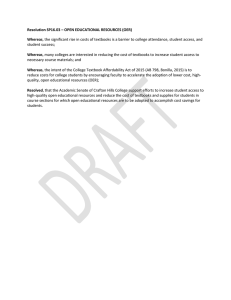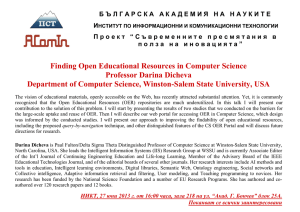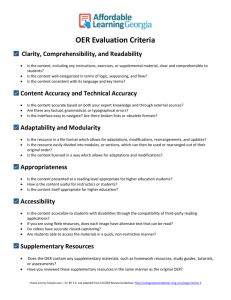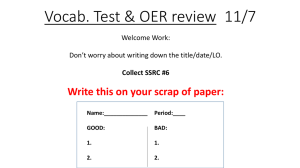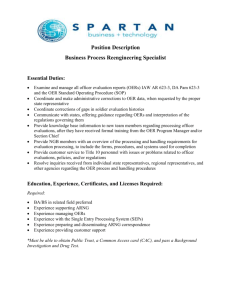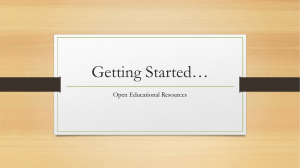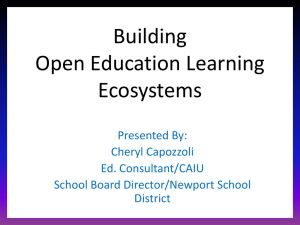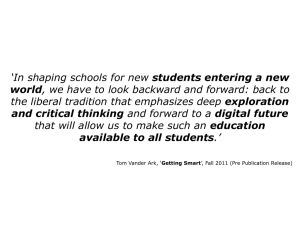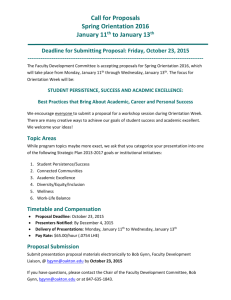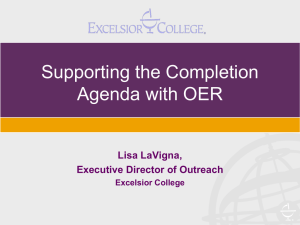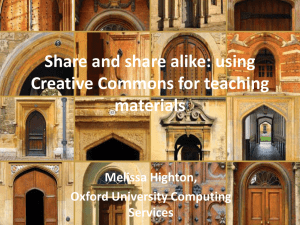OER Needs Assessment Survey for Faculty
advertisement
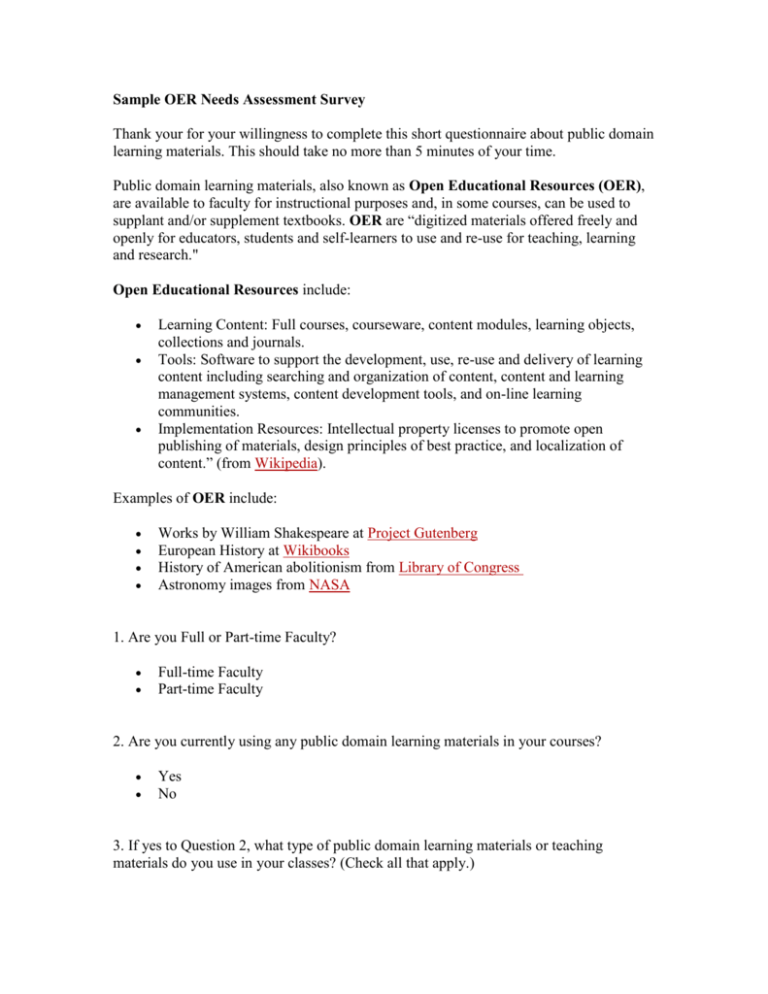
Sample OER Needs Assessment Survey Thank your for your willingness to complete this short questionnaire about public domain learning materials. This should take no more than 5 minutes of your time. Public domain learning materials, also known as Open Educational Resources (OER), are available to faculty for instructional purposes and, in some courses, can be used to supplant and/or supplement textbooks. OER are “digitized materials offered freely and openly for educators, students and self-learners to use and re-use for teaching, learning and research." Open Educational Resources include: Learning Content: Full courses, courseware, content modules, learning objects, collections and journals. Tools: Software to support the development, use, re-use and delivery of learning content including searching and organization of content, content and learning management systems, content development tools, and on-line learning communities. Implementation Resources: Intellectual property licenses to promote open publishing of materials, design principles of best practice, and localization of content.” (from Wikipedia). Examples of OER include: Works by William Shakespeare at Project Gutenberg European History at Wikibooks History of American abolitionism from Library of Congress Astronomy images from NASA 1. Are you Full or Part-time Faculty? Full-time Faculty Part-time Faculty 2. Are you currently using any public domain learning materials in your courses? Yes No 3. If yes to Question 2, what type of public domain learning materials or teaching materials do you use in your classes? (Check all that apply.) Textbooks available on the Internet Non-fiction books Fiction books Journal and journal articles Reference works/materials Images, music, or movies Industry white papers Blogs Wikis Computer program open source code Data sets of various kinds and online laboratory modules, visualizations for labs, digital maps, etc. Exercises, labs, solutions, etc. Grammar exercises from online writing labs Lectures available on podcasts (e.g., Stanford University) Newspaper articles Materials I created and put in the public domain or with a Creative Commons license Other, please specify 4. How likely are you to use public domain learning materials in 2007? Very likely Likely Neither likely nor unlikely Not likely 5. Are you interested in helping the district produce or identify public domain learning materials for your classes or field? Yes No 6. What support or resources would you need in order to be willing to contribute to producing public domain learning or teaching materials? (Check all that apply.) Paid compensation or stipend Release time for development Training Software Equipment Guidelines and/or templates Expert content reviewers Copyright checking and clearance services Established criteria for identification and selection of materials A development team to work with Workshop on copyright or intellectual property issues Workshop on the nature, availability, and accessibility of public domain materials A district/college website repository of public domain materials Training in conjunction with district/college course management system Support in handling articulation concerns and related issues Broadband, high-speed internet connection to my home. Server space for file storage Software for multimedia and/or web design Other, please specify 7. What is your discipline? (fill in)
